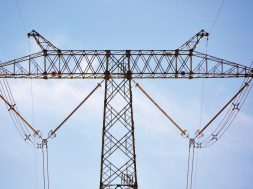
MUMBAI: The latest power ministry data shows Maharashtra as the state that owes the highest dues of Rs 21,500 crore to power gencos (generating companies). MSEDCL managing director Vijay Singhal, however, told TOI that there was “some difference in the accounting procedure” and according to his calculations, the dues were not more than Rs 13,500 crore.
Singhal said he has coordinated with managing director of Mahagenco and senior officials, and a meeting is scheduled for Tuesday to make the “correction” and inform the Union power ministry as well.
“We will put forth details of our accounts and calculations which show that the dues we owe to gencos are not more than Rs 13,500 crore,” he said. The power ministry data showed that after Maharashtra, it was Tamil Nadu which owed the second highest dues of Rs 20,990 crore to the gencos.
While dues owed to gencos seem to be rising, the MSEDCL, which is the state power discom for over 2.8 crore consumers, also faces the problem of recovering money through electricity bills. It has over Rs 60,000 crore arrears as pending electricity bill payments (including subsidy) from consumers. Of this, Rs 42,000 crore are unpaid bills by state farmers and those owning agricultural land.
“If recovered, MSEDCL will be in surplus and making profit,” Singhal said, adding that though recovery from farmers has been difficult in the past, efforts made by his team resulted in recovery of Rs 2,500 crore from users in the past one year. “Between February 2021 and January 2022, we have effected recoveries of Rs 76,000 crore arrears – the highest in MSEDCL so far. But still our arrears keep mounting and we have to get back Rs 65,000 crore to keep the operations running smoothly,” he observed.
The state also owes MSEDCL Rs 9,131 crore, which can also be used to offset dues to gencos. MSEDCL has also embarked on a massive project of over Rs 39,000 crore – which includes Rs 11,105 crore project for installing 1.66 crore smart meters across the state, and Rs 14,230 crore to reduce electricity distribution losses by around 4%, which will bring in Rs 4,000 crore revenue annually.
“With smart meter, you will have to pay all your dues to procure electricity at home or office/industries. This will reduce our arrears to a great extent,” he said. Under this scheme, the augmentation of infrastructure – for which additional Rs 14,266 crore will be spent – will include construction of 527 new 33/11 KV substations at various places in the state and capacity enhancement of 705 substations.













